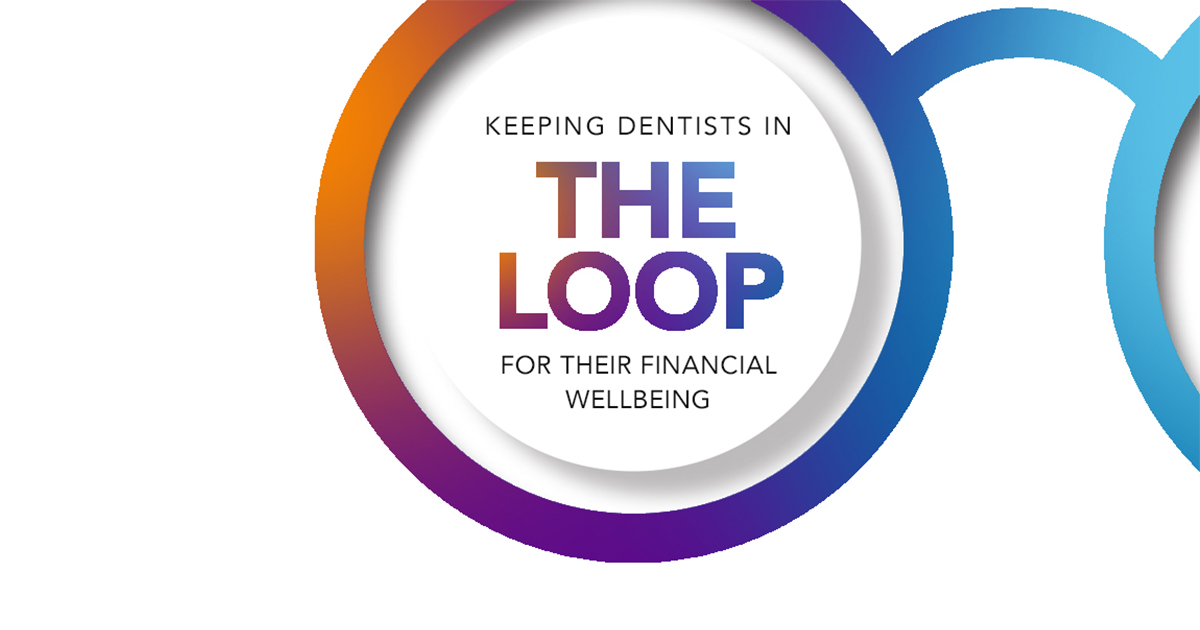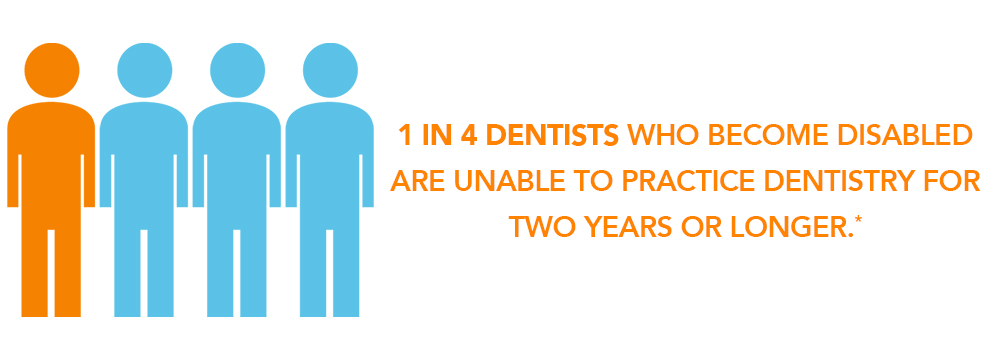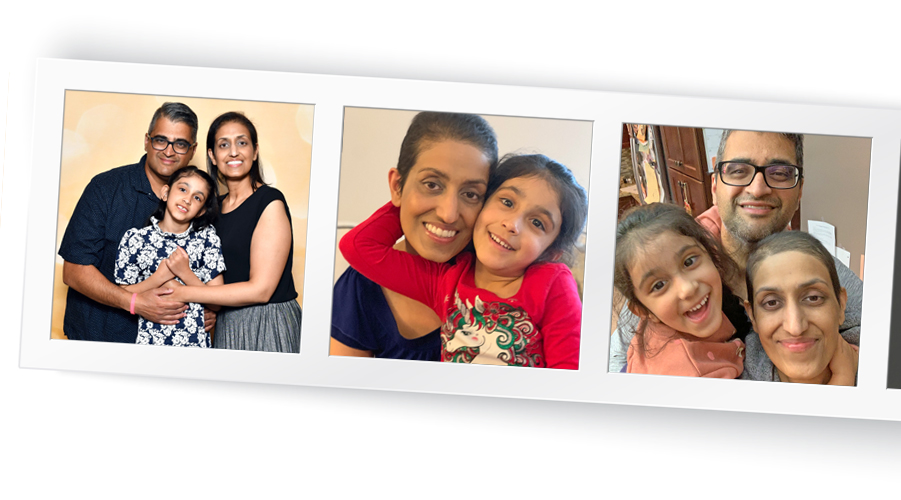
In this issue:
- Dentists and musculoskeletal disorders
- Beyond the dental chair with Dr. Kiran Atwal
- Reading the economic tea leaves

Musculoskeletal Disorders: The Leading Cause of Disability for Dentists
What’s the cause and what are the remedies?
What comes to your mind first when you think about a career-threatening disability? It may be an injury caused by an accident or something stress-related. Perhaps your first thought is of a disease like cancer. Would it surprise you that the most common cause of disability among dentists is musculoskeletal disorders (MSDs)? According to the claims made through our CDSPI DisabilityGuard™ Insurance plan with our partners at Manulife, well over half of all new disability claims processed for dentists from 2021 to 2023 were a result of MSDs. That’s significantly higher than the MSD rate among all claimants, at just over 20%*. Let’s see what's behind these surprising statistics.
Causes
Why do dentists experience a higher rate of MSD-related disabilities?
When you really think about it, it’s not that surprising after all that dental professionals are more prone to MSDs than most people. As we wrote in this post, because of the nature of the work, dentists have many of the occupational risk factors including repetition, awkward or static posture, high forces, and contact stress that can cause or aggravate these types of injuries.

Source: Manulife, claims data
There’s also a tendency for dentists to “put up with” the symptoms of MSDs and work through the joint and muscle discomfort in a belief that it is just part of the job. Powering through the pain without adequate rest and/or rehabilitation often leads to a more severe or permanent injury. The fact that dentists are self-employed, whether as an associate or as a practice owner, further contributes to the dentist’s beliefs that they need to push through whatever physical pain they may be feeling. Unfortunately, that work ethic can backfire with dentists experiencing longer than average periods of work-limiting disability that could have been avoided by early intervention.
Prevention
How can dentists avoid injury and disability?
While accidents and debilitating diseases are unfortunately unpredictable parts of life, MSDs can be within your control.
- Don’t ignore the warning signs. Pain and discomfort felt while performing regular activities is an indication that something is wrong. Address symptoms early, whether that means consulting specialists like orthopedists or physiotherapists familiar with the demands of dentistry.
- Workplace ergonomics also play a big role in preventing MSDs, and this is particularly true for dentistry. The organization Occupational Health Clinics for Ontario Workers publishes a comprehensive guide to Ergonomics and Dental Work that provides practical advice for dentists to reduce the incidence of MSDs in the clinical workplace.
- Physically preparing for your working day by getting adequate sleep and stretching and strengthening key muscle groups are simple strategies for avoiding MSDs. As a bonus, regular exercise can improve overall mental and physical health. A study cited by the American Medical Association earlier this year confirmed that adults who get 150 to 300 minutes of vigorous exercise per week were found to have 21% to 23% lower risk of all-cause mortality. They were also reported to have 27% to 33% lower risk of cardiovascular disease mortality and 19% lower risk of non-cardiovascular disease mortality. Another study found that daily exercise, at any level, leads to better health outcomes, including reduced inflammatory markers and a corresponding increase in immune cells*.
- Plan physical breaks throughout your workday and then take them. Those breaks can provide wonderful opportunities to do those stretches or get some fresh air.
* We Know Exercise Prevents Cancer. A New Study Tells Us Why - Medscape - Oct 04, 2023.

Recovery
Returning to Work Faster from a Disability
Returning to dental practice after a disability can be particularly challenging due to the physical demands of the profession. However, you can expedite the recovery and transition back to work effectively by taking some proactive steps, including setting realistic work expectations through a gradual return such as working shorter hours and taking on lighter duties.
Many disability insurance policies include partial and residual disability benefits that provide financial support while transitioning back to work, alleviating some of the financial pressure to rush recovery. In addition, your life insurance policy may have a waiver of premium stipulation where payments are suspended during a disability.
Even if there is a setback in recovery and the disability recurs within a certain period, your disability policy may include a recurring disability provision, which means the waiting time before benefits start is waived. This ensures continuous support without the stress of waiting for benefits to kick in again. Understanding and utilizing your insurance policy benefits can help ease the stress of returning to practice while minimizing financial strain and promoting a sustainable recovery.
Overheard at the ODA ASM
“Disability insurance is an absolute must have if you're self-employed”.
For Julie Berthiaume, a Senior Insurance Advisor at CDSPI Advisory Services Inc., disability insurance is an absolute must have for dentists. “I cannot stress enough to any of my clients how important disability insurance is because dentists are not employees,” she recently told a sold-out session at the Ontario Dental Association’s Annual Spring Meeting. “When you're a self-employed individual and you become disabled, there is usually no government benefit available to replace your salary or to hire a locum to cover for your patients. You need to have your own disability insurance.”
Ms. Berthiaume also cautioned dentists who own their practice, that they also need office overhead insurance. “It’s a form of disability insurance that helps pay ongoing office expenses if you become disabled,” she explained. “The rent, the utilities, the staff salaries still need to be paid. Without overhead insurance, that's going to come out of your pocket. Even if you hire a locum, or your associates pick up some hours, they often can't replace you completely”.
Getting advice
Finding a disability insurance solution that is the most appropriate for your work situation and financial priorities may seem complicated and time consuming, but CDSPI is here to help. We only work with dentists, so we understand your unique needs and income models. The experienced and knowledgeable insurance advisors at CDSPI Advisory Services Inc. will guide you through this important decision with unbiased advice that is always in your best interest. Book a meeting to speak with an advisor.

Work and Self-Worth
Redefining Identity Beyond the Dental Chair with Dr. Kiran Atwal
As a dentist, much of your identity is tied to your profession. After all, you invested a significant amount of effort, time, and money to gain the skills needed to become a dentist, so it must mean a lot to you.
What happens if you can no longer practise dentistry? This was the reality for Dr. Kiran Atwal, a new member of the CDSPI Advisory Panel, who was forced to stop practising after a cancer diagnosis in 2021. Discover how Dr. Atwal continues to support the dental community and redefines her personal values through her family, work, and volunteering.
Economic Outlook
Reading the Economic Tea Leaves with Scotiabank’s Chief Economist

When you live in interesting times, you sometimes need help to see the big picture. The packed house for our recent session at the Ontario Dental Association’s Annual Spring Meeting was fortunate to have Scotiabank’s Chief Economist, Jean-François Perrault, as their guide. The wide-ranging session covered topics from inflation and interest rates to the possibility of a global trade war and the upcoming U.S. elections. Grab a cup of your favourite warm beverage and watch the recording.
In case you missed it
- Drain Pain: The Hidden Risks of Uninsured Sewage Backups
- Your Members Assistance Program now offers perks & savings. Start saving!
- How Life Insurance can Safeguard your Estate... and Help Keep the Family Cottage